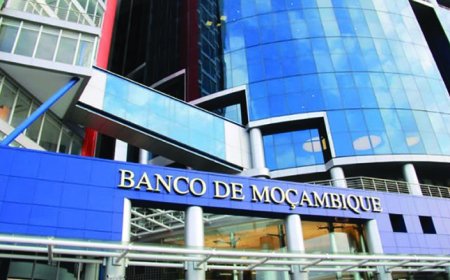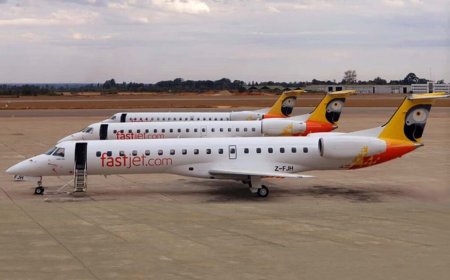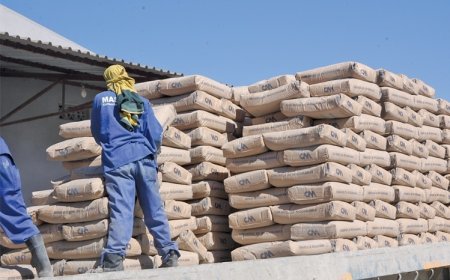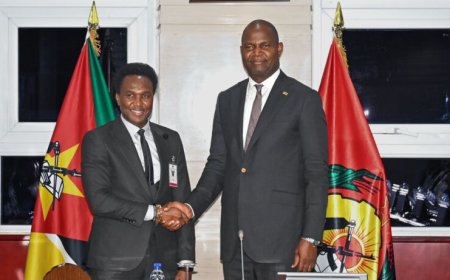Mozambique’s National Airline in Crisis as Local Crew Paid to Stay Home While Foreigners Fly, Serve and Maintain All Flights
Mozambique’s national airline, Linhas Aéreas de Moçambique (LAM), has entered a new and troubling chapter in its ongoing operational crisis. The company now operates exclusively with aircraft leased from foreign providers, including foreign pilots, cabin crew and maintenance teams, while highly trained Mozambican pilots, engineers and flight attendants remain grounded at home, receiving salaries without performing any duties.

Despite repeated government promises of restructuring and high-level interventions, LAM is sinking deeper into a management model that excludes its own national workforce, undermines operational sovereignty and raises serious concerns about its long-term economic viability.
According to an internal source who spoke to TORRE.News on condition of anonymity, LAM currently operates only three aircraft, all under full-service lease contracts. In aviation, this model often called wet leasing includes aircraft, crew, maintenance and insurance. As a result, LAM’s own technical staff, including pilots, mechanics and cabin crew, are completely sidelined.
Highly qualified Mozambican technical staff are being paid to stay home while LAM operates with third-party aircraft and foreign crews. It is as if the national professionals simply do not exist, lamented the source.
This model, considered financially risky, also prevents the company from exercising direct control over flight operations and safety protocols. LAM only covers fuel and airport taxes, often on credit. Everything else from flight crews to maintenance is handled by the leasing companies, the source explained.
Worse still, the source revealed that national pilots do not hold updated certifications for the leased aircraft, further deepening the airline’s dependence on foreign operators. Internally, concerns are growing about the sustainability of a model that not only alienates Mozambican professionals but also erodes the airline’s technical autonomy.
Today, the only thing flying is the LAM logo, the source remarked, referring to foreign-operated aircraft that bear the LAM brand but generate little more than symbolic revenue for the company akin to mere royalties or, as locally phrased, yonga.
Mozambican pilots, according to the source, are accumulating inactive hours, a development that seriously threatens their professional trajectories and is fuelling dissatisfaction among the technical staff.
Further compounding the crisis is the tense relationship with CemAir, the South African company operating LAM’s CRJ900 aircraft. Around two months ago, CemAir reportedly threatened to suspend operations over delayed payments, insisting that all financial obligations be met within agreed timelines.
LAM’s fragile operational state was once again exposed this week when multiple domestic flights were abruptly cancelled, including routes to Beira, Nacala, Chimoio, Quelimane and Pemba, without any prior notice to passengers. The airline’s silence sparked protests at major domestic terminals, where stranded passengers received no guidance on rescheduling or alternative transport options.
According to the source, direct responsibility lies with Mozambique’s Minister of Transport and Communications, João Matlombe, who is accused of blocking the entry of new operators into the domestic market. One such case involves Solenta Aviation, a company seeking to launch FastJet branded operations in Mozambique, whose application has reportedly been obstructed.
The minister is protecting LAM and its shareholders, namely HCB, CFM and Emose, at the expense of aviation laws that guarantee free competition on internal routes, the source said.
The controversy has deepened following a recent decision by the government and LAM’s shareholders to launch a public tender for four additional leased aircraft, even as discussions continue about acquiring permanent aircraft to restore LAM’s operational independence.
LAM is confused, and so is Minister Matlombe. He does not understand the aviation sector and has no clear solutions, the source concluded.
As it stands, the future of Mozambique’s national carrier remains uncertain. Its continued reliance on foreign operators, marginalisation of its own workforce and resistance to domestic competition place the airline’s viability at risk in a market that demands efficiency, competitiveness and sovereignty.





















